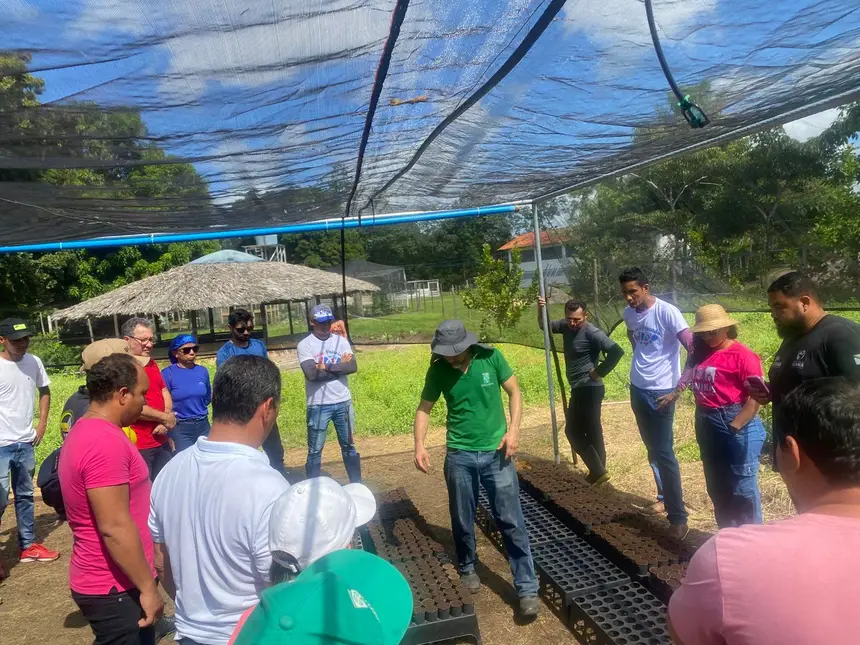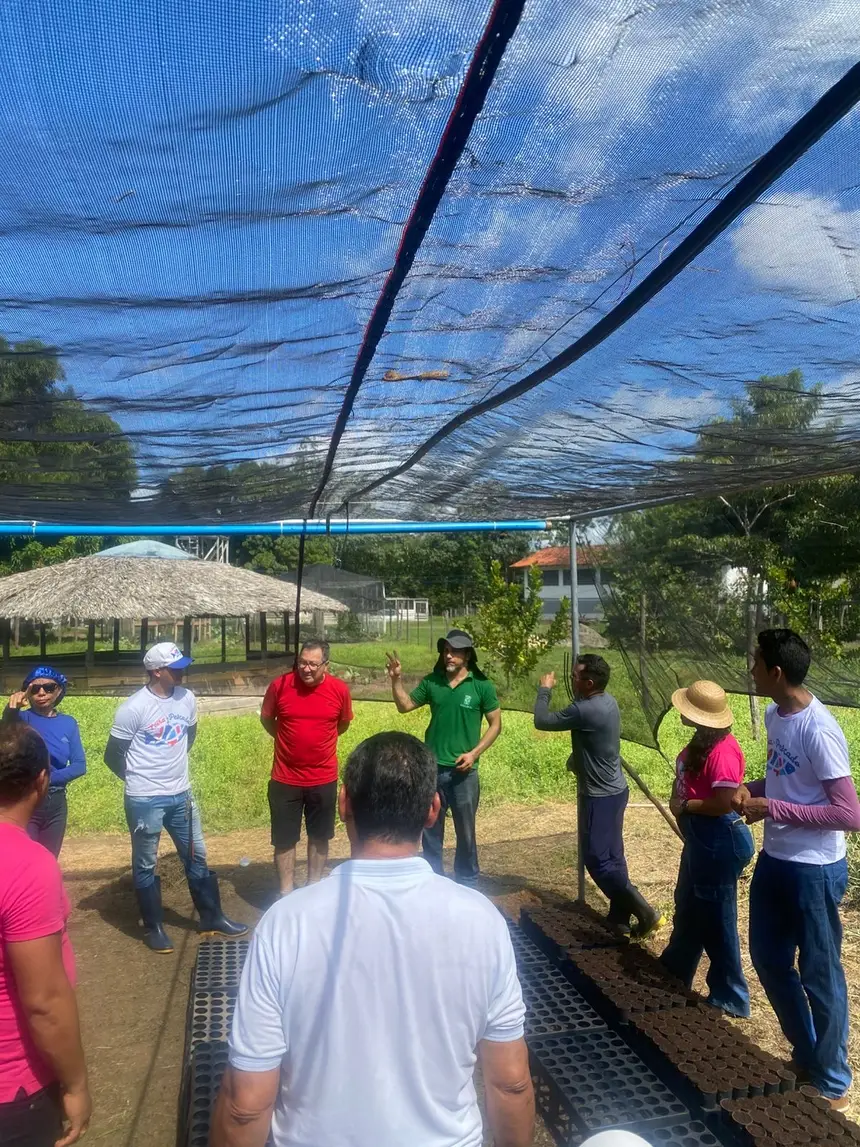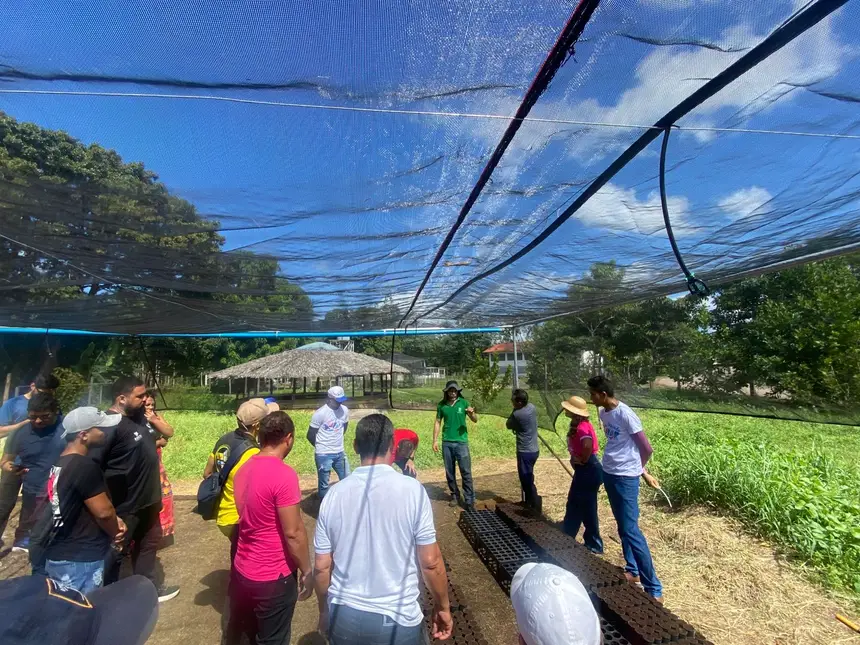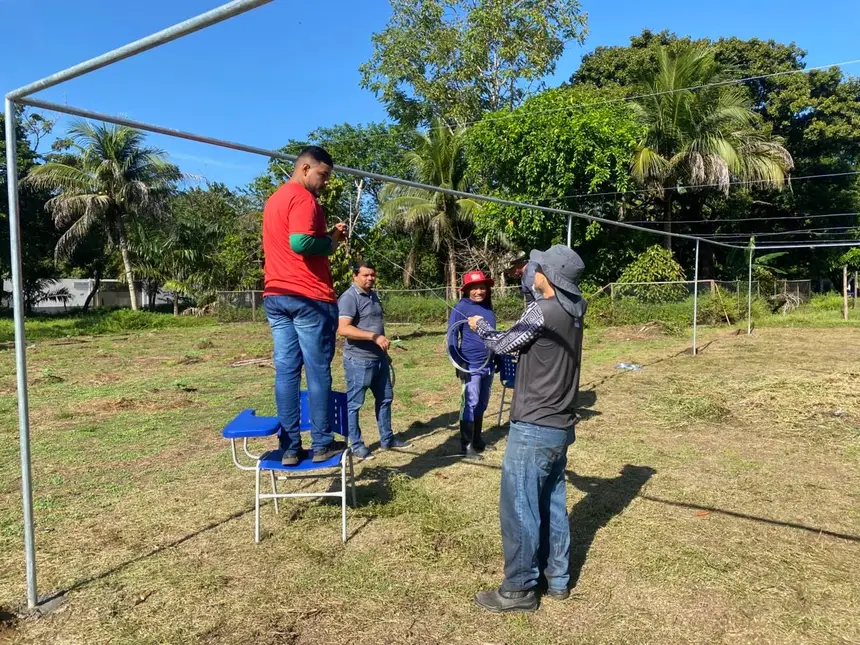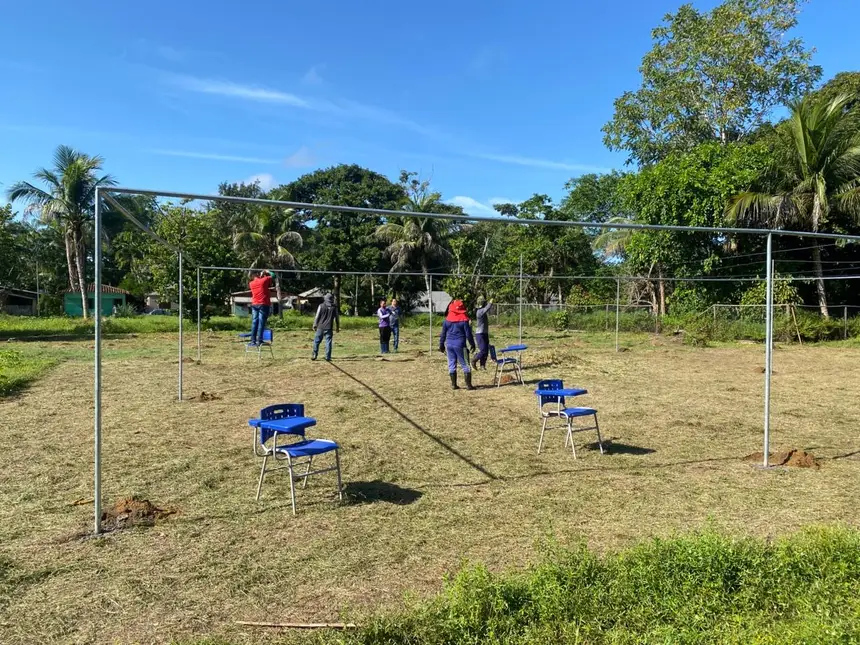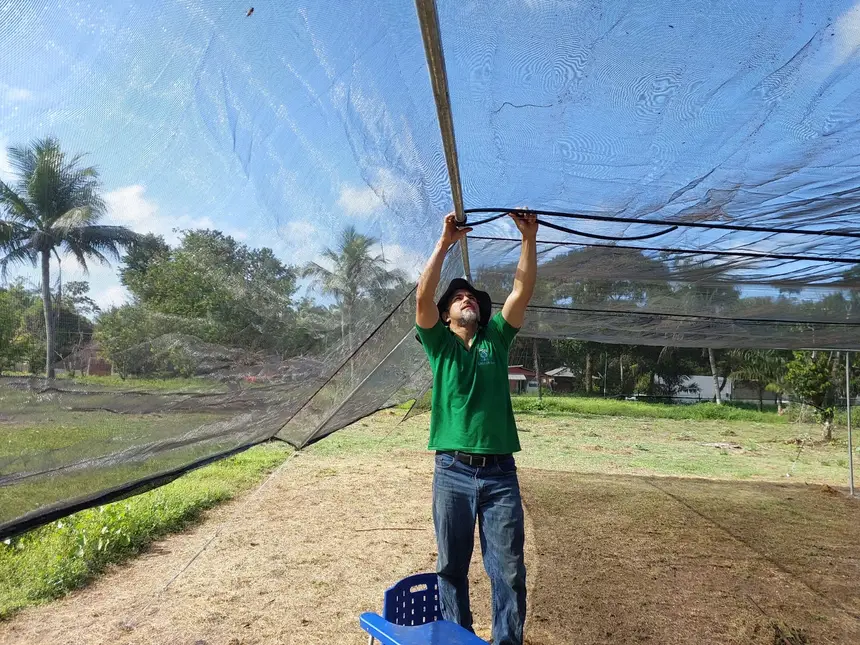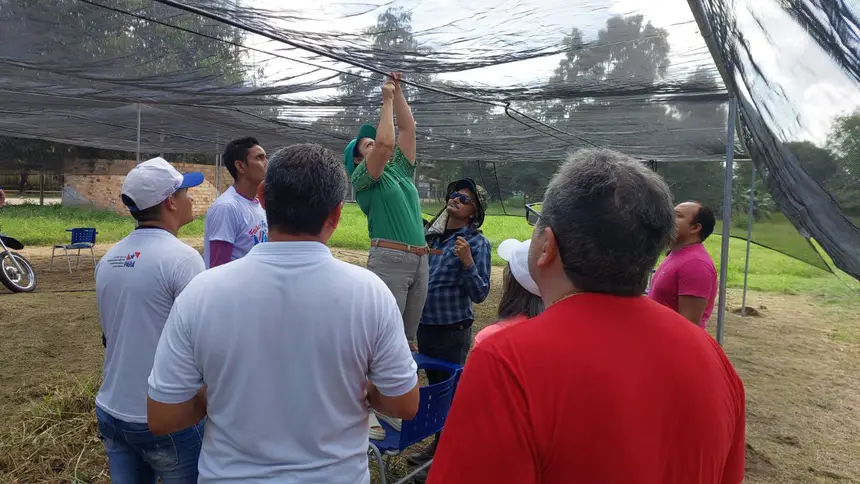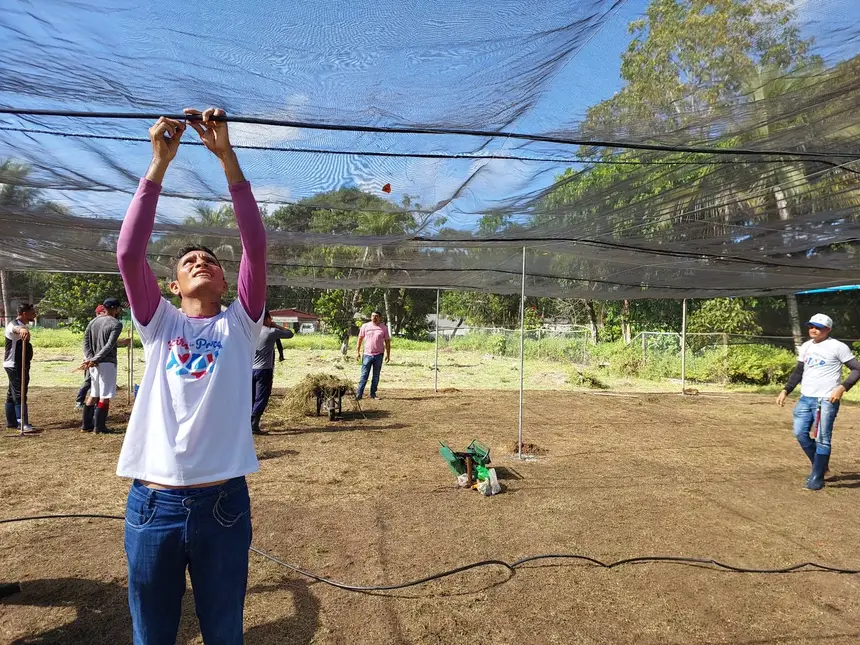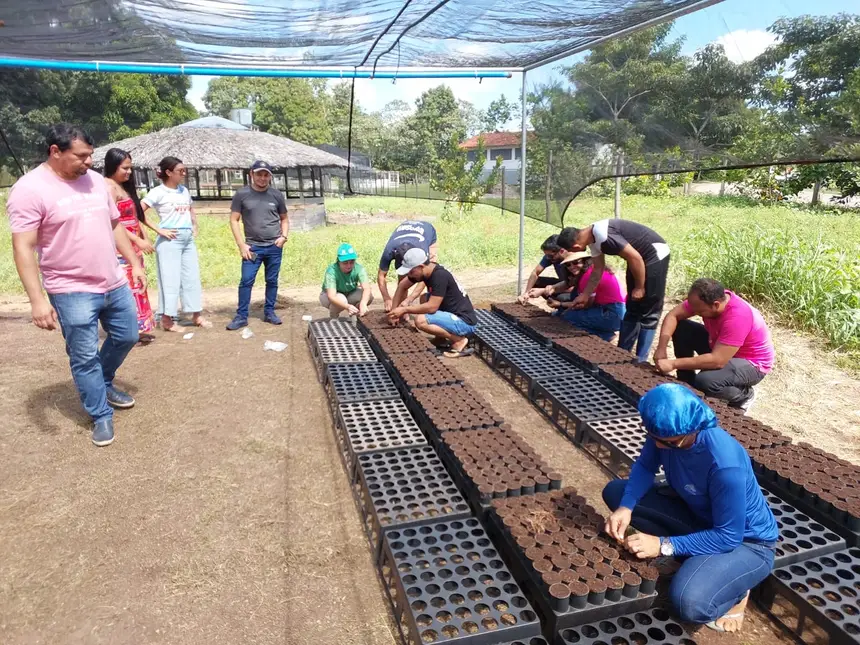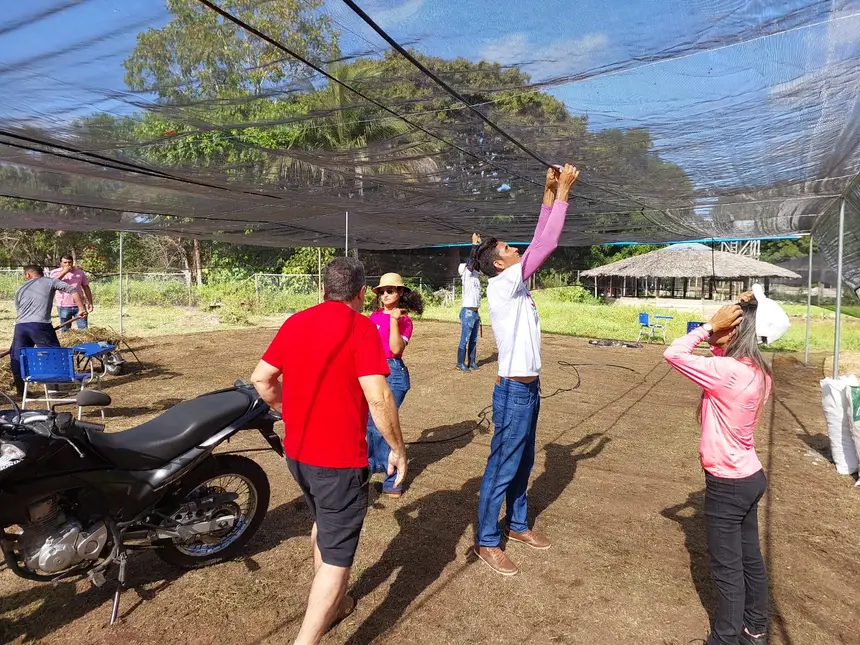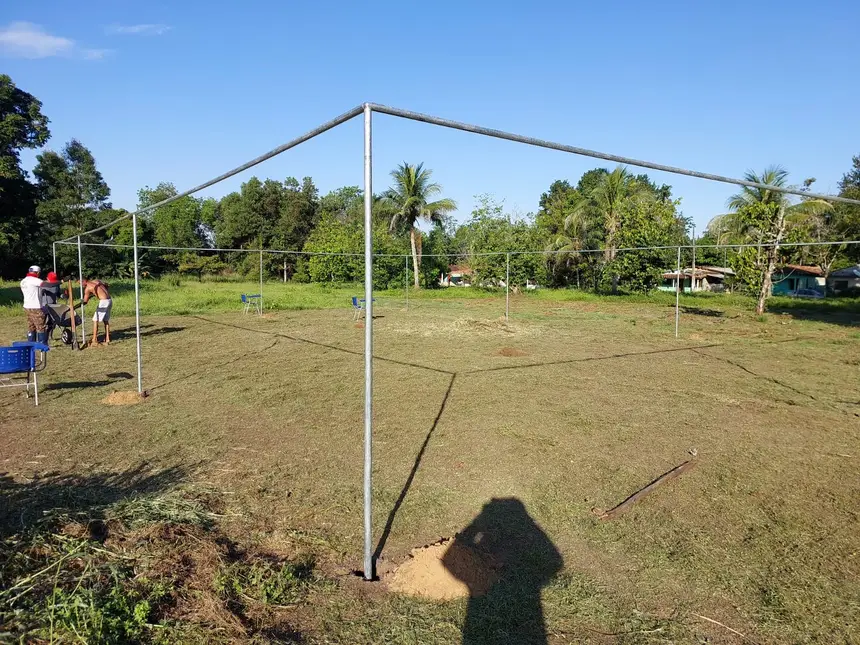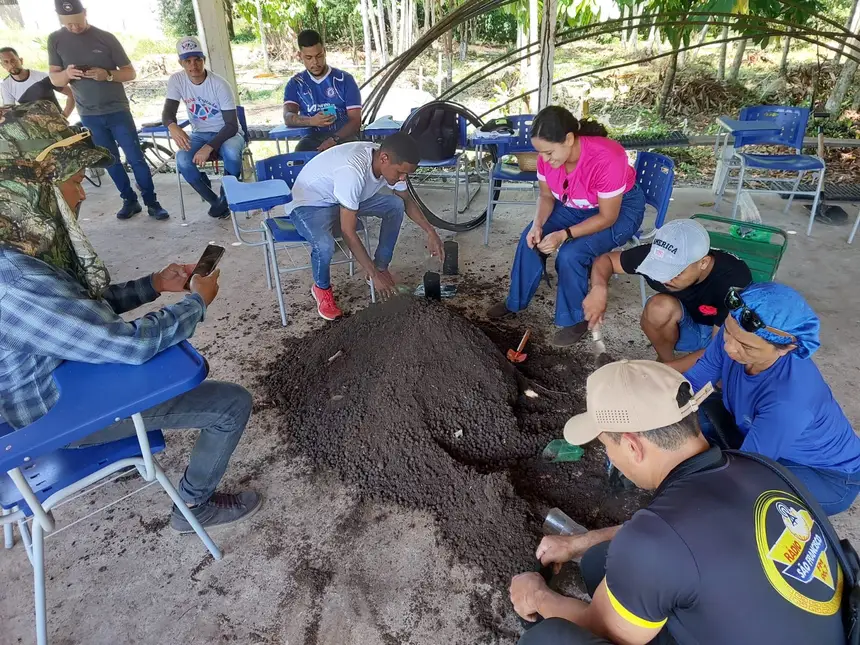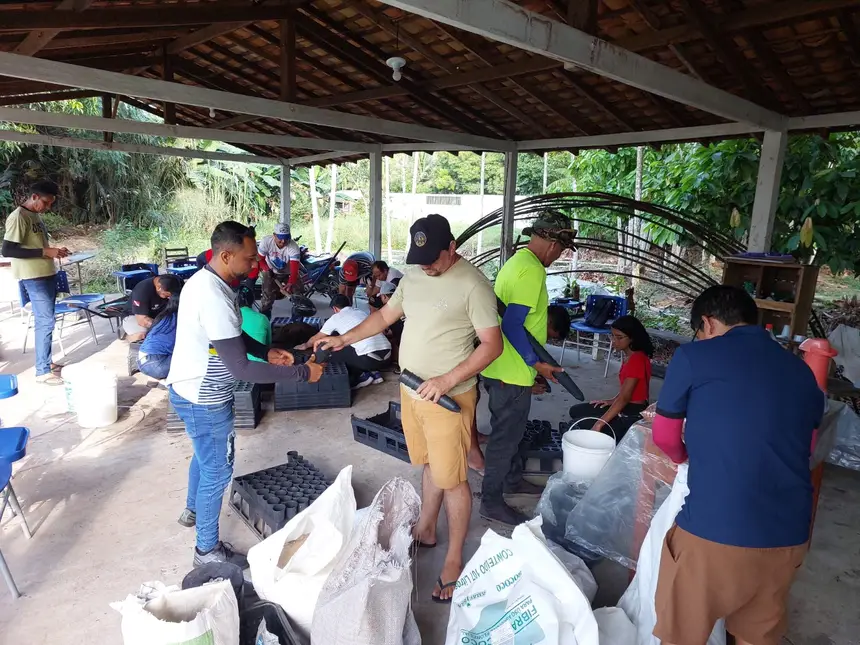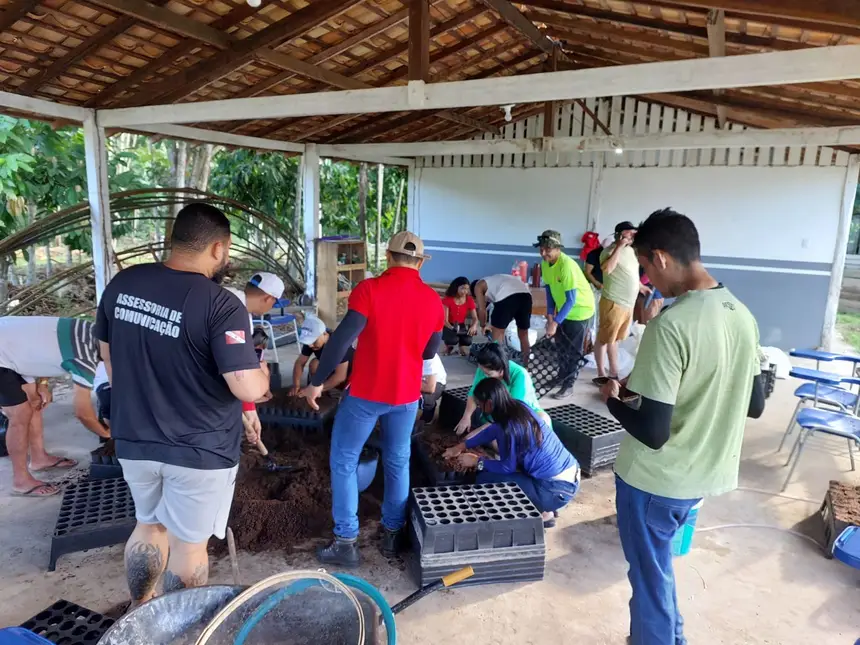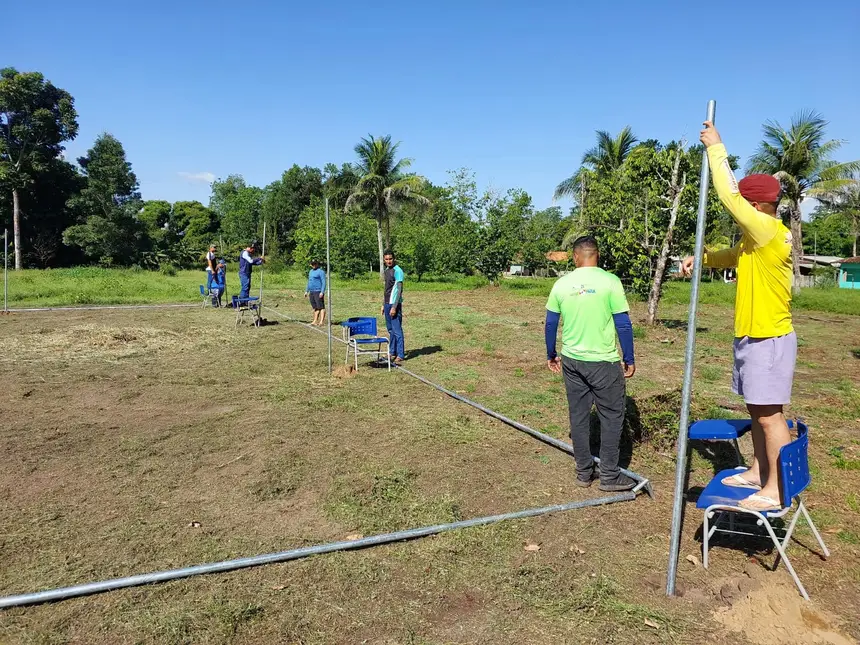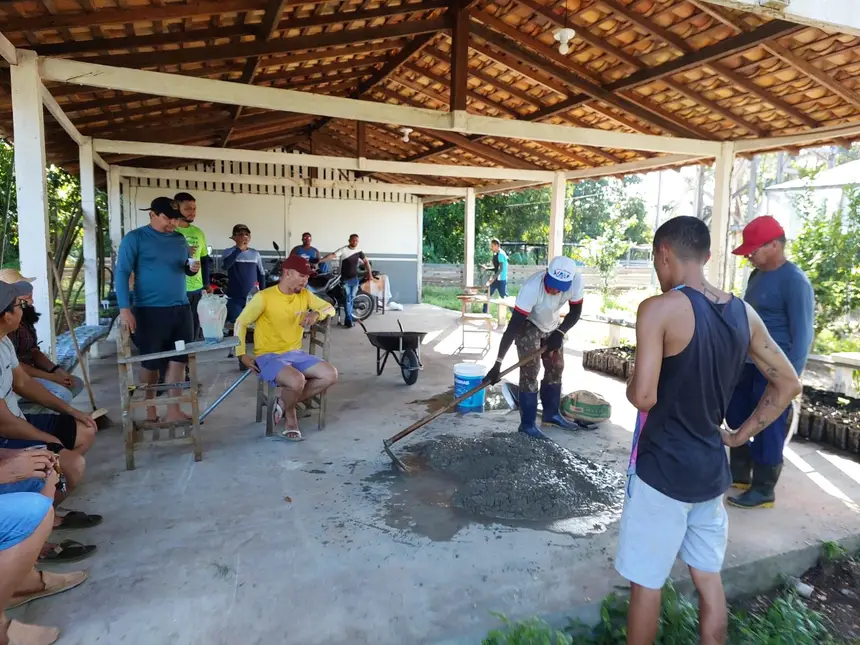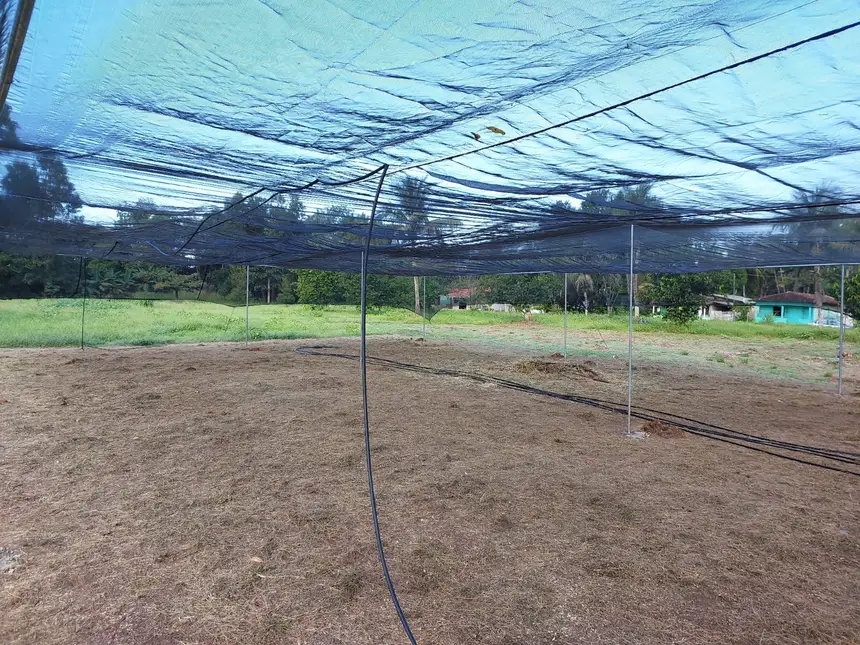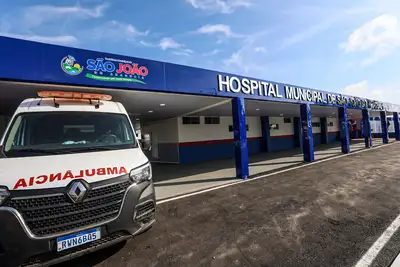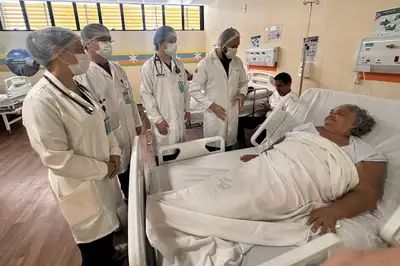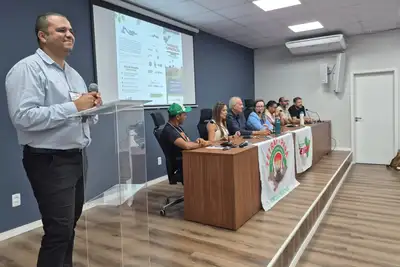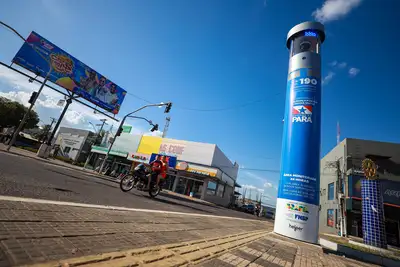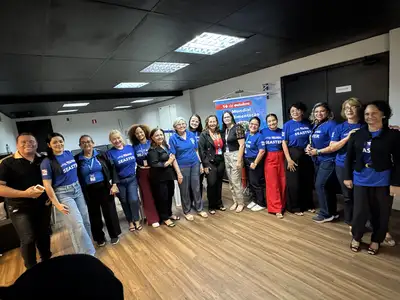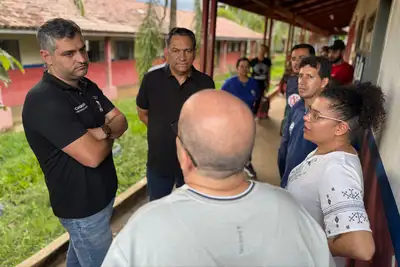Nurseries in Marajó promote recovery of degraded areas and generate income
Ideflor-bio installed six new facilities and has been expanding the coverage of the Agroforestry Systems Project (PROSAF) and workshops on seedling production
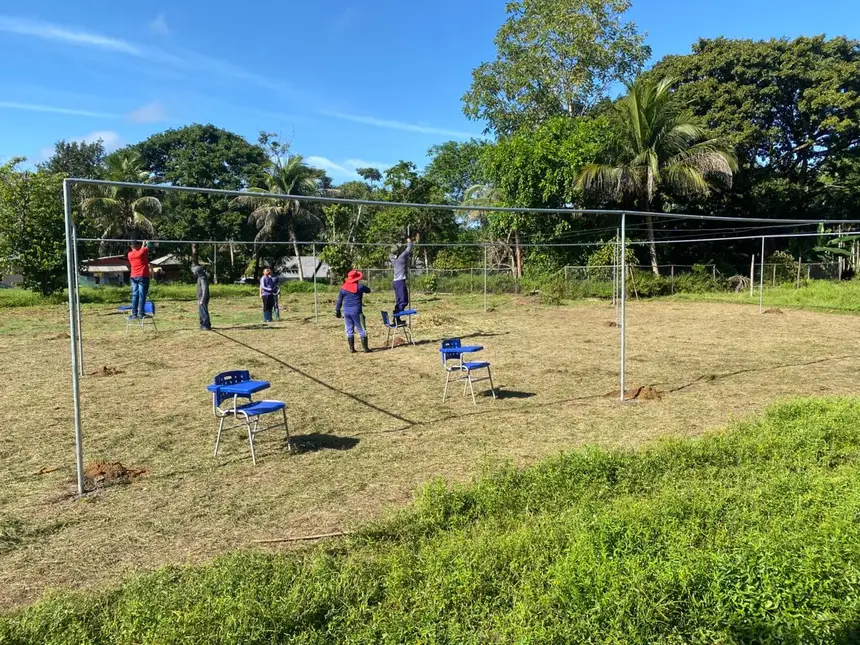
New nurseries, workshops, and a boost to the sustainable economy. This can be the summary of the work of installing new nurseries in the Marajó Archipelago, carried out by the Forest Chain Development Directorate (DDF) of the Forest Development and Biodiversity Institute of the State of Pará (Ideflor-Bio) in the first half of 2025.
The structures have a production capacity of up to 15 thousand seedlings of forest and fruit species, focusing on meeting the demands of the Agroforestry Systems Project (PROSAF), and together they have the capacity to produce more than 100 thousand seedlings per year.
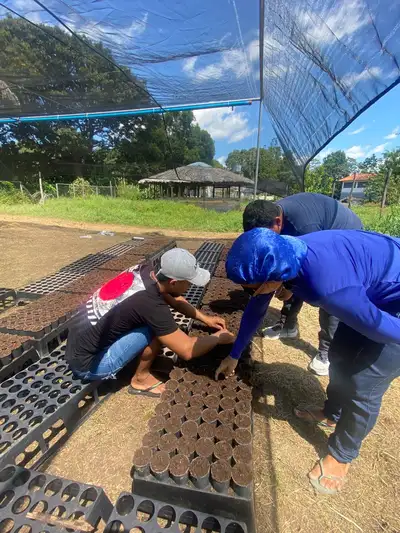
According to Ideflor-Bio, the nurseries are strategic for strengthening environmental recovery actions and income generation among local communities, by encouraging the cultivation of native and economically valuable fruit species.
For farmer Jovanildo Teles, the nurseries have a positive impact on the lives of residents in the benefited areas. “This guarantees the possibility of a quality seedling close to their rural properties. In addition to reducing the investment in seedlings for the farmer to almost zero, since they will be donated,” he emphasized.
Strategy - The head of the DDF, Vicente Neto, emphasizes that these actions, combined with PROSAF, significantly contribute to the recovery of degraded areas in the state. “These activities are part of a proposal that encompasses social, economic, and environmental components, involving families, generating income, and contributing to the environment through the recovery of these degraded areas,” pointed out the director.
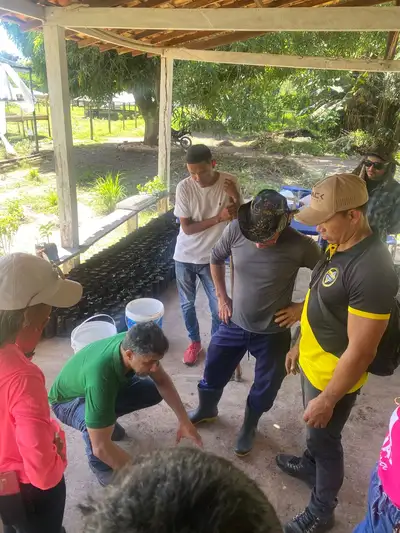
The quality of the equipment is also an important factor to ensure that seedling production advances. The nurseries were built with a galvanized iron metal structure and have a shade cloth cover with 50% shading, which ensures the ideal protection for seedling development. In addition, the sprinkler irrigation system will ensure a regular water supply, improving the management and quality of the plants produced.
Bioeconomy - According to the manager of the Eastern Marajó Regional Office, Osiane Barbosa, six new nurseries have been established only in the eastern portion of the archipelago. She highlights that these spaces contribute to the development of the green economy. “These new nurseries that were installed here in Marajó boost the bioeconomy of the region sustainably, conserving the natural assets present in the preserved areas of the island,” she stated.
The forest engineer and environmental analyst of Ideflor-Bio, Daniel Francês, was involved in the establishment of the six new nurseries in Marajó and emphasizes that these spaces provide seedlings for the Agroforestry Systems (SAFs) implemented by family farmers benefited by PROSAF. According to the specialist, SAFs bring various economic and environmental benefits to local producers.
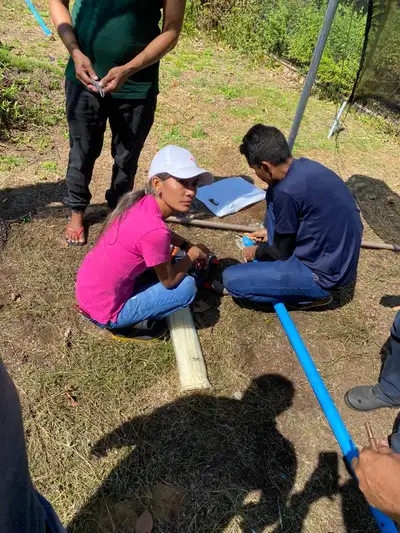
“In July 2025, we established the last nursery in the municipality of Muaná, with a capacity for 15 thousand seedlings, in partnership with the Municipal Agriculture Department. We also conducted a seedling production training for technicians and family farmers from the communities that will be served by this nursery,” he emphasized.
Text by Sinval Farias with supervision by Vinícius Leal / Ascom Ideflor-Bio



